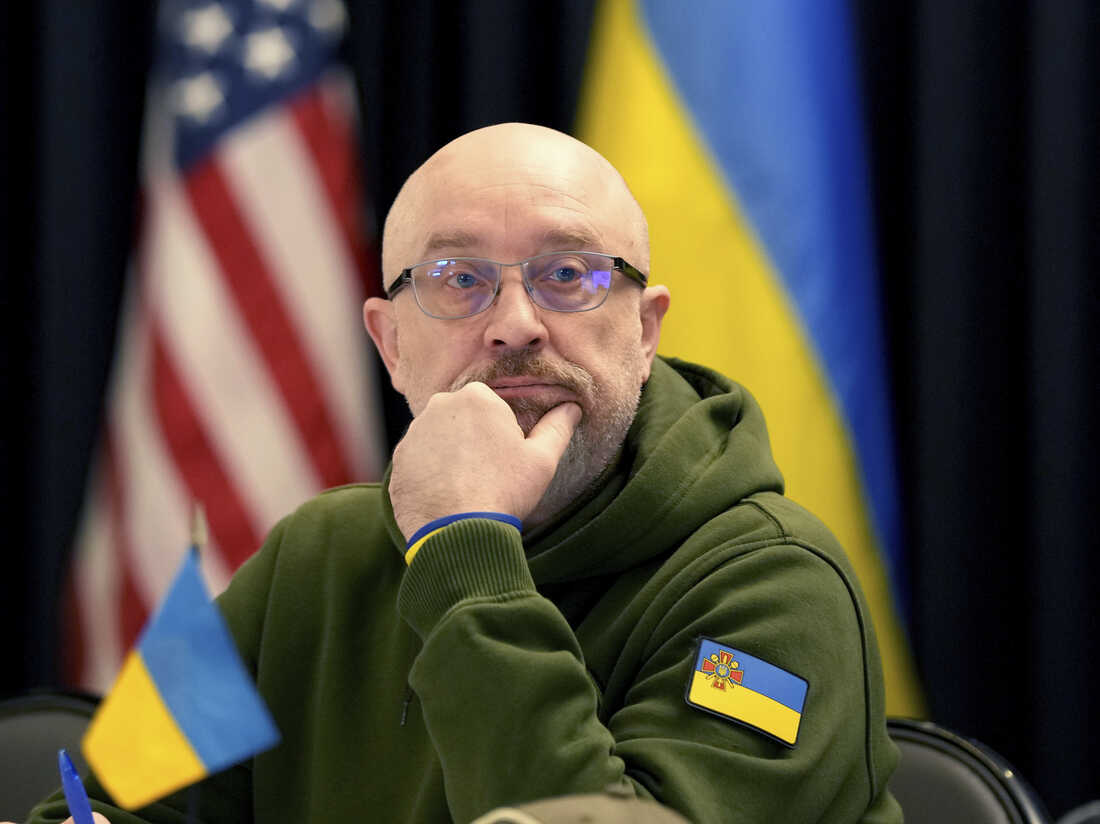Restructuring or Corruption Scandals? A Large-Scale Dismissal Campaign Within the Ukrainian Ministry of Defense

In a new campaign of dismissals that comes a month after the dismissal of Ukrainian Defense Minister Oleksii Reznikov (57 years old) and the appointment of a new Defense Minister, Rustem Umerov (41 years old), the Ukrainian government recently announced that it had decided to dismiss six deputy defense ministers.
On September 5, the Verkhovna Rada of Ukraine voted to accept Reznikov’s resignation from the post of Minister of Defense while at the same time removing Rustem Umerov from his position as head of the State Property Fund.
On September 6, Umerov assumed the official role of Defense Minister of Ukraine, a move that was overwhelmingly supported by the country’s parliament.
The decision to appoint Umerov comes as Kyiv’s relationship with allies and donors enters a new phase and in the wake of a series of corruption scandals within the Ministry of Defense.
Military Dismissals
On September 18, the Ukrainian government announced a series of dismissals of six deputy defense ministers at a critical time in relation to the counterattack launched by Ukraine against the Russian army since the beginning of June, and its results are still less than expected.
The Kyiv Post newspaper revealed the officials who were dismissed from Zelenskyy’s government: Hanna Maliar, Volodymyr Gavrilov, Vitaliy Deynega, Rostislav Zamlinsky, Denys Sharapov, and Andriy Shevchenko.
Konstantin Vashchenko, the Defense Ministry’s secretary of state, has also been dismissed, while First Deputy Defense Minister Oleksandr Pavlyuk has been retained.
The Ukrainska Pravda news website quoted unnamed government sources as saying all the deputy ministers had resigned voluntarily following a request by Umerov and would not be returning to their posts.
It is noteworthy that Hanna Maliar, known for her frequent reports on the course of the war and who has served as Deputy Minister of Defense since 2021, was criticized this month after she initially said that Ukrainian forces were able to regain control of a village from Russian forces in the east of the country, but she later retracted and started again that what she reported was not accurate, and that fighting was still raging around her.
The Ukrainian government did not publicly state the reason for the campaign of dismissals within the ranks of the Ministry of Defense, but the Speaker of the Crimean Parliament, Vladimir Konstantinov, suggested earlier that the resignation of the Ukrainian Defense Minister, Oleksii Reznikov, was related to the failure of the counterattack launched by the Ukrainian forces.
Commenting on the dismissal of Reznikov from his position and the appointment of Rustem Umerov in his place, Konstantinov said, “I do not know Umerov at all, but I know exactly the state the entire defense system has reached on the territory of the former Ukraine.”
He added: “Their movements indicate that the goals of the counterattack that they celebrate were not achieved by them, and their allies in the West have clearly expressed their dissatisfaction with Zelenskyy’s entire military team.”
Ukrainian President Volodymyr Zelenskyy had appointed Rustem Umerov as the new Minister of Defense as the Russian war on Ukraine entered its nineteenth month, pointing to the need for a new approach and other forms of interaction with the army and society as a whole.
Introducing Umerov as the new Defense Minister, President Zelenskyy emphasized the immediate need for changes within the ministry, with a focus on anti-corruption measures and the well-being of Ukrainian troops and their families amid a broader anti-corruption campaign in Zelenskyy’s government.
Umerov was born in Samarkand, Uzbekistan, to a Crimean Tatar family deported from Soviet Crimea in the 1940s, which Russia annexed in 2014.
Before assuming the new post, Umerov served as head of the former State Property Fund of Ukraine, whose mission was to attract investments to Ukraine, and he was closely involved in prisoner-of-war exchanges.
He also served as chief negotiator for the Black Sea Grain Initiative and more than once expressed doubts about Russia’s commitment to the agreement.

Corruption Scandals
Oleksii Reznikov, who served as Ukraine’s defense minister from November 2021 until his dismissal this month, oversaw one of the largest military support operations in history and billions of dollars in arms and other military aid that Ukraine received from the West.
Although Reznikov is not personally accused of corruption, there have been a number of scandals in the Ministry of Defense related to the purchase of goods and equipment for the army at inflated prices.
In total, five regional governors, four assistant ministers, and two government agency officials left their positions, in addition to the assistant director of the presidential administration and the deputy public prosecutor.
Zelenskyy also took a decision to prevent some official officials from traveling, except in relation to their work, after media reports indicated that a government official had traveled during the current war to spend his vacation in Spain, which sparked widespread criticism.
At the time, the United States welcomed the dismissals and said that there was no apparent harm to the American funds provided to assist Ukraine, amounting to billions of dollars.
The government also dismissed Vasyl Lozynskyy, the acting minister for regional development, on suspicion of receiving a bribe worth $400,000 to facilitate contracts for the purchase of equipment and generators at inflated prices.
Last August, Zelenskyy fired all those responsible for the regional military recruitment centers against the backdrop of corruption scandals related to the army’s recruitment and supply operations, confirming that there were 112 criminal cases against officials in military registration and recruitment offices.
On September 2, Ihor Kolomoisky, one of Ukraine’s most powerful businessmen, was arrested on charges of fraud and money laundering.

Ukrainian Concerns
The Times newspaper revealed in a report in May 2022 that corruption in Ukraine leaves Ukrainian soldiers without equipment and means of life, pointing out that rampant corruption brings soldiers to the point of despair.
It seemed clear that the Ukrainian authorities’ rapid reaction to corruption cases was due to a response to the request of the European Union amid fears of a decline in Western support for Kyiv, both economically and militarily.
Zelenskyy said last January that rooting out corruption across Ukraine’s government is vital to Kyiv’s chances of attaining long-awaited membership in NATO and the EU.
According to a 2021 report by Transparency International, Ukraine is the second most corrupt country in Europe, after Russia. Globally, it ranked 122nd of 180 countries.
Since last year, Ukraine has officially become a candidate country for membership in the EU, but Brussels has made clear that Kyiv will need to intensify its fight against corruption if it wants to become a full member.
Suspicions of corruption within the Ministry of Defense have increased concerns expressed by the Russian and Western press about the fate of Western weapons provided to Ukraine and the possibility of them leaking to terrorist parties, which will negatively reflect on European security.
In addition to the dismissals linked to suspicions of corruption, the Ukrainian presidency decided in July 2022 to dismiss two of the country’s top security officials from their duties on charges of treason.
During the same month, Prosecutor General Iryna Venediktova and Security Services Chief Ivan Bakanov were dismissed due to suspicions of several cases of treason committed by local officials on behalf of the Russians and the officials not making sufficient efforts to combat this.
Aside from accusations of corruption and treason, last February, the Ukrainian president dismissed the Commander of the Joint Forces of the Ukrainian Army, Eduard Moskalyov, without announcing the reasons for this decision.

The researcher specializing in Russian affairs, Dr. Mahmoud al-Hamza, explained in a statement to Al-Estiklal that “the recent dismissal of Defense Minister Oleksii Reznikov from his position is considered the biggest change in the ranks of the Ukrainian leadership since the start of the Russian invasion in February 2022.”
He pointed out that the dismissal also came after months of corruption scandals that affected his ministry and coincided with the failure of the counterattack, which did not achieve the desired successes during 3 months of fighting.
In a related matter, Dr. al-Hamza indicated that the Ukrainian side hopes that dismissals, investigations, and trials due to corruption will contribute to continued Western support that ensures the country’s stability and steadfastness in the face of the Russian invasion, knowing that Ukraine has a long history of rampant corruption and fragile governance.
The researcher also ruled out that the series of dismissals and resignations would affect the cohesion of the Ukrainian political elite, especially since it is concentrated in the second echelon, in addition to the heads of some military departments.
Sources
- Ukrainian government dismisses 6 deputy defense ministers
- Rustem Umerov: who is Ukraine’s next defence minister?
- Ukraine's Zelenskiy moves to replace wartime defense minister
- Zelensky shakes up Ukrainian government amid growing corruption scandal
- Corruption leaves Ukrainian reserves without weapons and supplies











